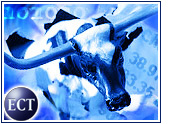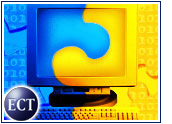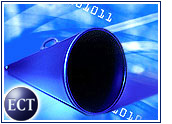
Sun Microsystems has positioned itself to tackle the Linux marketwith a significant upgrade to its Solaris operating system.
The new version of Solaris, which features enhanced built-in Linuxcompatibility, is seen as an attempt to mesh Solaris offerings with Linux.The OS also includes a development toolkit that should simplifydevelopment of Linux-compatible applications.
In addition, Solaris version 9 — Sun’s most far-reaching upgrade in years –includes about 300 new features that will improve the way the OSoperates and that will reduce the level of administrative interventionrequired.
Stayin’ Ahead
Sun has maintained its lead in the UNIX market despite heavy competitionfrom IBM, which produces its own UNIX systems and has aggressivelypursued both market share and Sun’s customers. Just last week, IBM snaredformer Sun customer Colgate-Palmolive as part of a program designedto insinuate IBM products into competitors’ shops.
For its part, Sun has won former IBM customers, such as Galileo International,to its camp as well.
What the two companies have succeeded in doing, Forrester Research analystCarl Howe told the E-Commerce Times, is putting “buyers in the driver’s seat.This is great for buyers, who stand to benefit from the lower prices andbetter deals offered when two competitive giants [go] head to head.”
Howe added that both companies “have first-class platforms supported by a lot ofcompanies,” and that enterprise decision makers should select thevendor that offers better support for their specific situation.
Hard-Won Dominance
According to figures released by research firm IDC, Sunholds 68 percent of the global market for shipments of UNIX workstations. Sun has made itclear that it does not want to lose even a little of that market share to IBM.
“Sun Microsystems has maintained its leadership position in theUNIX/RISC-based workstation market by consistently meeting the needs of itsextensive installed base while aggressively expanding into new verticals andsegments,” said Kara Yokley, research manager of IDC’s workstation program.According to IDC, Sun has led the market in terms of revenue for the past 14years.
That victory has been hard won — IBM has come from behind to confrontSun at every turn. Now, hoping to tilt the balance again with its latest Solaris upgrade, Sun is turningits attention to the Linux market.
Linux Laggard?
Favored by programmers, Linux has been praised for its open architecture.The OS is not under the control of a single vendor; rather, its code is open toany programmer who wants to develop on the platform. Some industry observersbelieve the burgeoning Linux market eventually will eclipse UNIX.Although Linux currently is aimed at the lower end of the server market, the OS is expectedto move into the high end as it matures.
IBM and other Sun competitors already support Linux, and Sun previously hasbeen criticized for lagging behind them in that market. By ensuring that Solaris 9offers improved Linux compatibility, the company is taking steps to close that gap.
Bigger Problems
But as IBM and Sun duke it out in both the UNIX and Linux markets, the companiesface bigger problems. Neither one has posted impressive financials in therecent past.
In the first quarter ended March 31st, IBM’s diluted earnings per share fell 31percent from the year-ago period to 68 cents. Net income in the first quarter was$1.19 billion, a 32 percent decline from the $1.75 billionrecorded in the same quarter of 2001.
As for Sun, during the same time period — the company’s third fiscal quarter of 2002 — thecompany reported essentially flat revenue compared with the previous quarter.However, Sun reported a net loss of $26 million on that revenue.






















































Social Media
See all Social Media